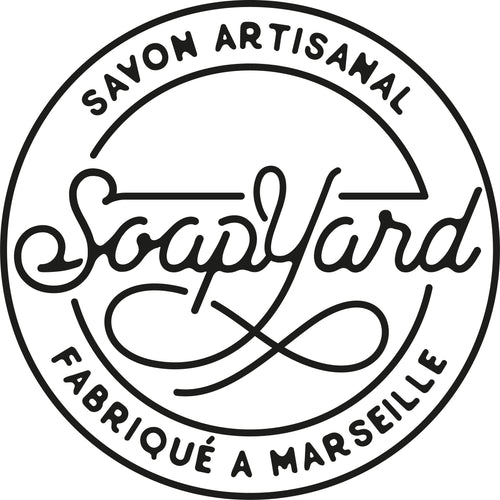Eco-friendly, affordable and made the traditional way
The Real Cost of Laundry Detergent in the UK
In most UK households, laundry detergent is a routine expensive but necessary purchase that quickly adds up. On average
Ariel Bio 24-wash liquid: ~£5.75 (£0.24 per wash)
Bold 2in1 Pods 30-pack: ~£7.50 (£0.25 per wash)
These products often contain synthetic fragrances, optical brighteners, and enzymes — effective, yes, but costly and not exactly gentle on fabrics or the environment.
Now, let’s compare this to a handmade, traditional alternative...
Enter: Grated Marseille Soap
Marseille soap, particularly the kind made traditionally in Provence using plant oils and no parabens (like ours at SOAPYARD), is incredibly versatile — and ridiculously economical when grated and turned into liquid laundry soap.
How I Make It at Home
You don’t need to be a chemist or DIY wizard. This is a simple, satisfying process:
What You’ll Need:
A bar of Marseille soap (approx. 200g)
Cheese grater
Large bowl or jug
Hot water
Recycled soap or laundry liquid bottle
Optional: a few drops of essential oil (see below)
Method:
Grate about 50g of Marseille soap finely.
Dissolve the shavings in 1 litre of hot water. Stir until smooth.
Let it cool, then pour it into a clean, reused bottle.
It thickens over time – just top it up with more hot water and give it a shake.
Add 3–5 drops of essential oil for fragrance (see note below).
Use 100ml per wash – around 10p per load!
That’s less than half the cost of most supermarket detergents — and with fewer ingredients.
A Note on Essential Oils
Essential oils can add a natural scent, but not all are safe for fabric or sensitive skin.
Here are some safer choices:
Lavender – calming and antibacterial
Lemon – fresh and degreasing
Eucalyptus – especially good for sportswear
⚠️ Avoid strong or resinous oils like cinnamon, clove, wintergreen, or tea tree, which can stain clothes or irritate skin. Always do a patch test first, and never overdo it — essential oils are potent.
Disclaimer:
This method is intended for personal use and shared in good faith. Please test your homemade soap on a small laundry load before regular use. Essential oils should always be diluted, used sparingly, and stored safely away from children. If unsure, consult an aromatherapist or fabric specialist.
Final Thoughts: Why This Works
Cost-effective: Marseille soap costs less than £2 per 200g bar and makes 4+ litres of detergent.
Less waste: Reuse old bottles and skip the plastic pods.
Better for sensitive skin: No synthetic perfumes or unnecessary additives.
Rooted in tradition: This method has been used for centuries across France.
It’s a small switch — but one that adds up.
Try It, Share It, Tag Us
Making your own laundry soap is not just frugal — it’s fun and a great conversation starter. Tag your creations with #SOAPYARDLaundryHack and share your process. Let’s bring back the charm of proper soapmaking.

